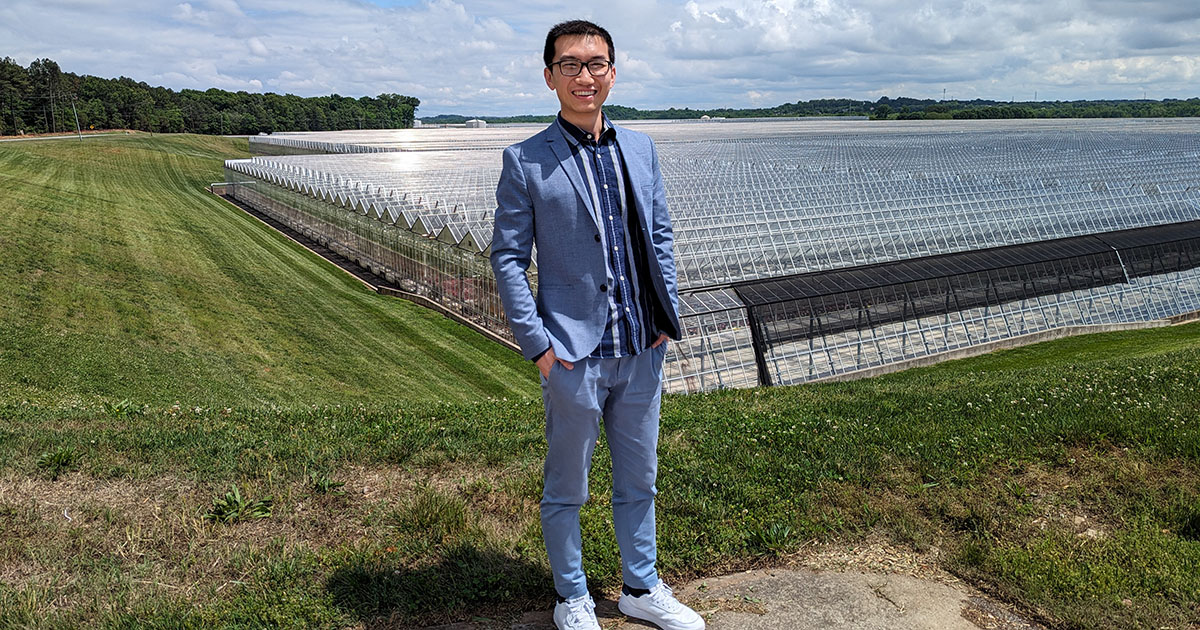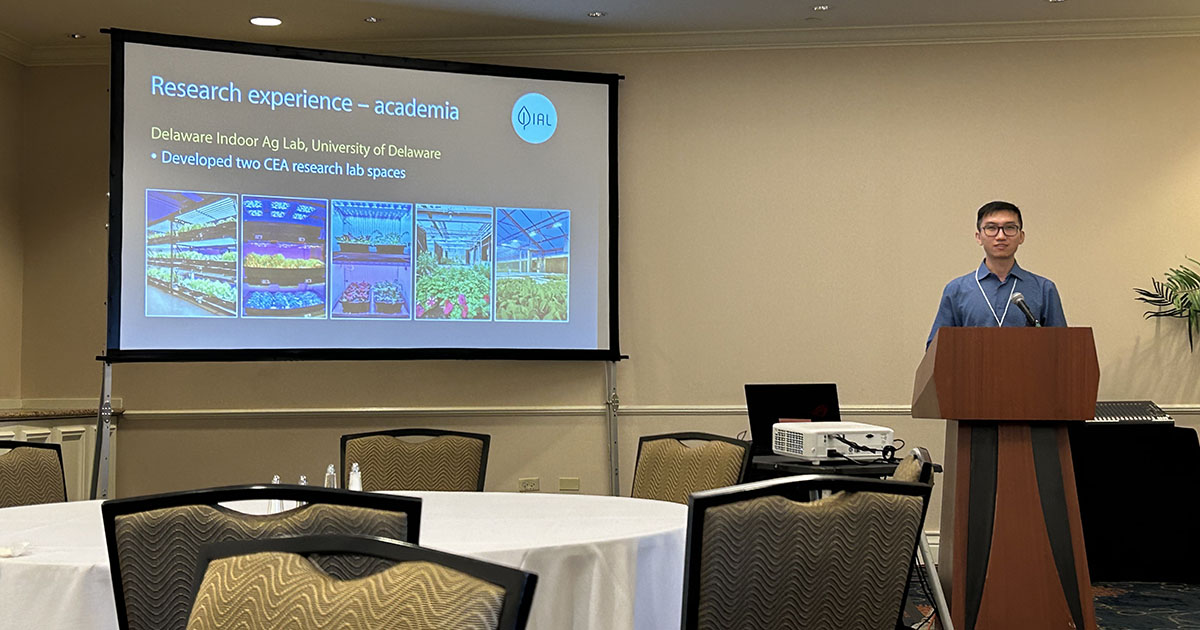
Category: Plant and Soil Sciences

Qingwu (William) Meng honored by American Society for Horticultural Science
October 29, 2024 Written by Molly Schafer | Photos courtesy of William Meng
This September, the University of Delaware’s Qingwu (William) Meng traveled to Honolulu for the American Society for Horticultural Science (ASHS) Annual Conference. Founded in 1903, ASHS is the world’s premier professional society for horticultural science. Meng, an assistant professor of controlled-environment horticulture at the College of Agriculture and Natural Resources (CANR), presented his work as a finalist in the ASHS early career competition.
The competition awards faculty who have developed well-rounded, integrated programs combining research, teaching and/or Cooperative Extension in their first five years. It’s no surprise to his fellow Blue Hens that Meng was awarded second place in the prestigious competition.
“Dr. Meng has his finger on the pulse of controlled environmental agriculture (CEA), which is becoming more important as arable land becomes more scarce,” said Nicole Donofrio, professor of plant pathology. “A safe and secure food supply is going to have to come from multiple sources, and CEA is certainly one of them!”
Meng is in his fifth year at UD. He credits Donofrio, his faculty mentor, for helping him find his footing at the college. Meng’s research and teaching focus on the production of high-value specialty crops, including edible crops and flowers, in highly controlled environmental systems like greenhouses and indoor farming spaces.
“In these protected facilities, it is possible to fine-tune environmental factors, such as light, temperature, CO2, and humidity,” Meng explained. “We can also control the composition and concentration of the nutrient solution, as well as water pH in the root-zone environment, to make sure that we can produce high-quality, high-yielding and high-value specialty crops.”
Meng primarily works with hydroponic leafy greens like lettuce and kale and floriculture crops like chrysanthemums and petunias. He says controlled-environment horticulture is a sustainable solution to feeding the world while protecting the planet.
“Controlled-environment agriculture allows for hyper-local production of fresh vegetables and fruits in the places where most people live and consume food. By minimizing food mileage we can reduce the emissions from transportation across the whole country.”
Hydroponic systems conserve water and fertilizers by recirculating and reusing these resources.

“Most of the freshwater withdrawn in the U.S. is used for agriculture, and a lot of that goes to irrigating fields,” said Meng, who also serves as chair of the CANR Greenhouse Advisory Committee. “Hydroponics can help to conserve our valuable natural resources.”
Issues like fertilizer runoff, foodborne pathogens (like Salmonella and E. coli), and crop loss due to extreme weather are also less troublesome in controlled environments.
Meng developed three new classes for the college, including Growing Plants in Space (PLSC167), which is being held for the first time this semester. The class is one example of how Meng integrates his research into his teaching and was a highlight of his ASHS presentation “To Infinity and Beyond: Advancing Research and Teaching in Controlled-Environment Horticulture.”
With funding from NASA, Meng investigates space crop production, specifically how leafy greens grown under elevated CO2 concentrations respond to different light, humidity and nutrient inputs.
“In this class, my goal is to expose the students to plant science overall by capturing their interest in something that almost everybody finds fascinating: space exploration!” Meng said of the course, which boasts guest lectures from NASA scientists.
“A lot of these things may seem far in the future,” Meng continued. “But the technologies that we develop by tackling these seemingly impossible challenges can eventually benefit what we do on Earth. They help us think about how to use our finite resources on Earth and increase our sustainability of agriculture overall.”
Meng was humbled to receive the award and quick to give credit to those who have helped along the way like the staff of the Fischer Greenhouse, UD’s state-of-the-art plant growth facility. Bill Bartz, greenhouse manager and Rodney Dempsey, greenhouse supervisor supported Meng as he built the Delaware Indoor Ag Lab and continue to help maintain his various experiments.
“Throughout the years, the undergraduate students, graduate students and interns who worked for me also contributed greatly to these different projects,” Meng said. “Without them, the research would not have happened.”
